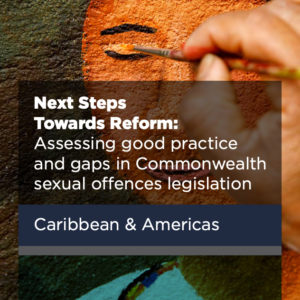Sexual offences laws in Saint Kitts and Nevis are found in the Offences against the Person Act 1986 (OAPA) and the Criminal Law Amendment Act 2002 (CLAA). The Evidence Act 2011 (EA), applies to all criminal offences.
Saint Kitts and Nevis has not revised its primary law on sexual offences, the OAPA, since 2002. These laws do not meet good practice and are not human rights compliant in many respects. For example, they do not expressly state that marital rape and sexual assault are crimes and that there is no exception for, or defence of marriage in any circumstance. Sexual assaults, including child sexual offences, are not gender-neutral and sexual intercourse with people with intellectual disability is criminalised regardless of whether it is consensual. The age of consent is 16 years for opposite-sex sexual activity. Saint Kitts and Nevis does not have any close-in-age defences to child sexual assaults to prevent criminalising consensual sexual activity between young people.
The law provides the option of corporal punishment (whipping) of an offender who is 16 years or under instead of a custodial sentence for ‘defilement of a girl under 14’ (s 4(2) CLAA). This is contrary to human rights and good practice and should be repealed.
Until 2022, Saint Kitts and Nevis criminalised consensual same-sex sexual activity, via the ‘buggery’ and ‘sodomy’ as crimes under the OAPA, which also equated them with bestiality. In 2022, the High Court of struck down these laws insofar as they hey criminalised consensual sexual acts between adults in private. Nonetheless, good practice would be to repeal laws such as the ‘buggery’ and ‘sodomy’ offences and ensure that all non-consensual sexual acts, including anal ‘rape’, be included in the standard sexual assaults provisions, such as ‘rape’ and ‘sexual assault’, as well as in child sexual offences. All of these crimes should be gender-neutral.
Saint Kitts and Nevis is a state party to relevant international and regional human rights treaties, including the Inter-American Convention on the Prevention, Punishment, and Eradication of Violence against Women (Convention of Belém do Pará), UN Convention on the Elimination of All Forms of Discrimination against Women, Convention on the Rights of the Child and Convention on the Rights of Persons with Disabilities. It is not a party to the Convention against Torture and Other Cruel, Inhuman or Degrading Treatment or Punishment or International Covenant on Civil and Political Rights.
The full assessment of Saint Kitts and Nevis is available here.



